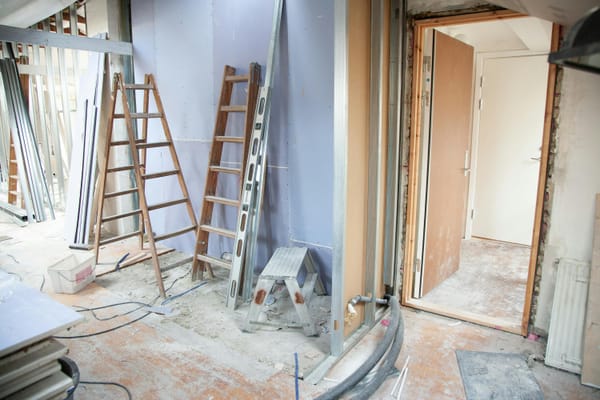Get Reviews That Mention Neighborhoods (and Why It Helps You Rank)

If you run a local business, chances are you’ve heard this a thousand times: “Get more Google reviews.”
But here’s the part most businesses miss:
👉 It’s not just about how many reviews you get. It’s what’s in those reviews that matters—especially if they mention the neighborhoods you serve.
In 2025, Google’s local algorithm has evolved far beyond basic name-address-phone listings and generic star ratings. Now, it's about relevance, trust, and proximity—and reviews are playing a much bigger role in how your business is positioned within the local map pack.
One of the strongest trust signals you can have? A recent, 5-star review that says:
“These guys built a beautiful retaining wall in our backyard in Chesterfield. Quick, professional, and cleaned everything up before they left.”
That’s not just a nice testimonial. That’s local SEO gold.

Why Review Content is a Hidden Local Ranking Factor
Google doesn’t just count stars anymore—it reads the actual words in your reviews. Its AI is now advanced enough to extract context like:
- What services you offer
- Where your customers are located
- What problems you solve
- How people describe your business
So when reviews repeatedly mention specific neighborhoods, cities, or ZIP codes, it sends a strong signal that you’re relevant to searchers in those areas.
Here’s what Google sees:
Relevance: ✔️ “Retaining wall”
Location: ✔️ “Chesterfield”
Sentiment: ✔️ “Quick, professional”
That’s exactly the type of content Google uses to decide who shows up when someone types in “landscaper near me” or “retaining wall contractor in Chesterfield MO.”

Why Most Businesses Miss This Opportunity
The problem is, most businesses focus on getting more reviews—not getting better reviews.
They’ll ask a customer to “leave a review on Google” and hope for the best. And sure, that may bring in stars, but it often results in vague, unhelpful feedback like:
“Great service!”
Nice? Yes. Effective? Not really.
These reviews don’t help you differentiate, don’t include location data, and don’t guide future customers—or the Google algorithm—toward what you actually want to rank for.

What You Really Want in a Review
Not every customer is going to write a novel, and that’s fine. But the more specific the review, the more powerful it becomes.
Here’s what to encourage:
- Neighborhood names: “In Ballwin,” “off Telegraph Road,” “our home in Kirkwood”
- Service keywords: “Fence repair,” “sod installation,” “grading and drainage”
- Positive adjectives: “Efficient,” “responsive,” “on time,” “above expectations”
- Timeframes: “Finished our patio in under a week,” “responded within a day”
When reviews naturally include these, they work like user-generated SEO content that helps your GBP and website rise in local search.

How to Ethically Guide Customers Toward Better Reviews
Let’s be clear—you can’t (and shouldn’t) tell customers what to say.
But you can encourage specifics by asking thoughtful questions when you request a review. Try something like:
“We really appreciate your feedback! If you can, it helps other local homeowners when you mention what service we did for you and which part of town you're in.”
Most happy customers are glad to help—especially if they know it makes a difference.
Pro Tip: If you're using a review request tool like Podium, NiceJob, or Birdeye, customize your follow-up message to include a reminder like:
“Mention your neighborhood or what we worked on to help others find us!”

The Ripple Effect of Better Reviews
When you start collecting reviews that mention your core services and target neighborhoods, a few powerful things happen:
- You rank higher in local packs for those keywords and areas.
- You earn more trust from potential customers who recognize their neighborhood or problem in the review.
- You create natural content that supports your entire SEO strategy without writing a word yourself.
- You gain a competitive advantage over businesses with generic reviews.
It’s free, it’s fast, and it compounds over time.

So, What Should You Do Next?
If you’re reading this and thinking, “I’ve got 50 reviews, but none mention where we actually work,” don’t panic. You don’t need to start over—you just need to improve your process going forward.
Here’s a quick checklist:
- ✅ Update your review request message to encourage detail
- ✅ Highlight top-performing neighborhood reviews on your website or landing pages
- ✅ Add a "Recent Reviews Near You" section to your site
- ✅ Consider sending a second follow-up asking for more feedback if a review is vague
And most importantly: keep asking. The longer you’re in business, the more opportunities you have to build a library of keyword-rich, geo-specific, trust-boosting reviews that help you win in local search.

Final Word: Your Customers Can Help You Rank—If You Let Them
Your customers are already your best salespeople. Now they can be your best local SEO allies, too.
By earning—and encouraging—the kind of reviews that speak clearly to what you do and where you do it, you not only improve your visibility… you build a brand that feels rooted, relevant, and trusted in the communities you serve.
And that’s exactly what Google (and your next customer) is looking for.



